Marble Valley - Interview
by John Clarkson
published: 22 / 8 / 2008
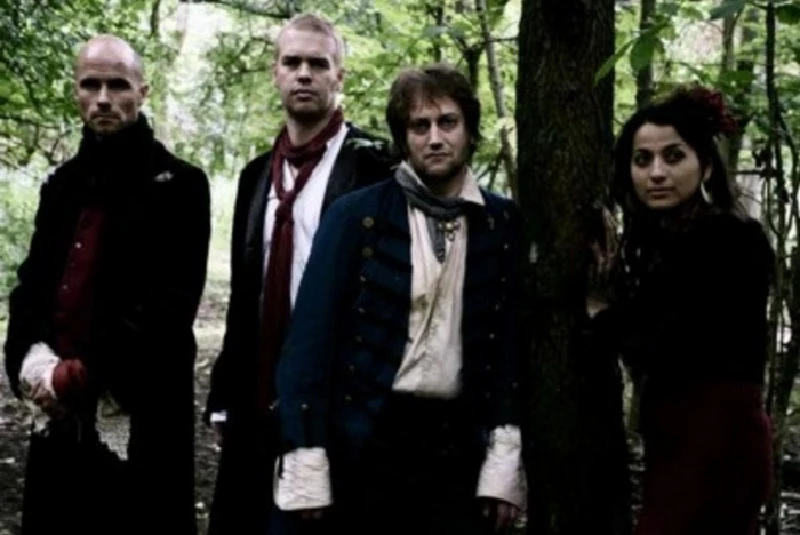
intro
In what is our second interview with him, John Clarkson speaks to Richard Neuberg from London-based Americana act Viarosa about his group's second album, 'Send For The Sea' and the developments in his song writing since their first album, 'Where the Killers Run'
When Pennyblackmusic last interviewed songwriter Richard Neuberg in 2005, it was just before the release of his band Viarosa's debut album, 'Where the Killers Run'. It was in many ways a dark, foreboding work, one which earned the London-based group a lot of critical praise, but which more than once critic at the time also described as a "country death" record. Influenced by both the early death of his father and the suicide of his sister, and Neuberg's resulting own long five year battle against both Chronic Fatigue Syndrome and depression, it was essentially an album about loss. Despite Neuberg having long lapsed and being an acknowledged aethist, it was engrained with the lavish Catholic imagery and language of his youth, and told, with a surprising lack of self-pity, of his attempt to find personal redemption through music. 'Send For The Sea', which like its predecessor has been released on Pronoia Records, finds Neuberg (vocals, guitars, mandolin), who is in his early 40's, joined by the same cast of players who appeared on the last album, Josh Hillman (violin, viola) ; Emma Seal (vocals) ; Rob McHardy (guitars, lap steel, pedal steel, piano and mandolin) ; Mick Young (electric and double bass)and Nick Simms (drums). Its language is similarly florid and redemption is again a major theme. Yet 'Send For The Sea' is nevertheless very much a development and progression. As the title of its opening track, 'Tourniquet', an old French word for a tight bandage used to stop bleeding, suggests, its tone is of tentative hope. The sea is a major metaphor for salvation, and while 'Where the Killers Run' was in the main largely an Americana record, musically too Viarosa have also moved on, especially on the meandering John Martyn-style folk of 'Ode to Sunlight' and the swaggering Gogol Bordello bar room blues of 'The Last Resolve'. Thundering rocker and anti-war number, 'These Old Walls', is meanwhile preceeded on the brief 'some you know the story' by the colourful fire-and-brimstone theatre of a rapping preacher, who also makes another appearance at the end of the album after the final song, the Jeff Buckley-influenced eerie psychedelia of 'The Sea'. Pennyblackmusic met up with Richard Neuberg a few weeks before the release of the new album in a pub near his home in North West London to talk about 'Send For The Sea'. PB : 'Where the Killers Roam' put a strong focus on personal redemption, yet was a fairly dark album. ‘Send for the Sea’ is again about trying to find redemption, but seems to be much more light and optimistic in tone. Would you agree with that ? RN : I see ‘Send for the Sea’ as being a lot more forward looking. A lot of the last album was entrenched in the past. It was very much about my family. There was a lot of looking back and it was a grief album. I have doubts sometimes about putting 'Tourniquet' as the opening track on ‘Send for the Sea’, but doing so was something of a statement of intent. The image, which comes associated with it, of putting something over a wound definitely for me acknowledges a moving on. PB : Your lyrics and song titles are often very lavish in their language, aren’t they ? RN : I studied English and Philosophy at university. Then I was an actor for about five years. I have written quite a lot as well. I did a couple of screenplays and I started a couple of novels. Language and words have always been important. PB : When you were an actor, did you work on television or was it mainly in the theatre ? RN : I did a couple of bits of television, but not much. I did a lot of theatre for a few years, but gave it up because I had that spell where I was ill for five years. Acting is exhausting, really exhausting. You're not really in charge of your own creativity as well. It is very fleeting. You don't own it. The really satisfying thing to me is creating something itself, and music for me really brings that and both performing and writing together. PB : You do on ‘Send for the Sea’ seem to be pushing your music in a new direction. There is not so much Americana on it. 'Ode to Sunlight' is almost like a Canterbury folk or John Martyn number, while 'The Last Resolve' sounds like something that Gogol Bordello or the Pogues might have done. RN : I did consciously move away from the Americana thing on this new record. I think the new album has got a bit less of that. It is always good to be involved in part of some movement, but I think this album has got much more of a defining sound. I actually took a song off the album that I felt was very Johnny Cash. PB : 'Ode to Sunlight' features a really beautiful flute solo. Who played that ? RN : That was my wife, Emma. I was so happy with that. She used to play the violin and the flute as a kid, but had hardly played the flute for about twenty years or something. She came downstairs one night and we ended up having a jam and that was the result. It was really nice. It seemed right to put it on. PB : She comes across as very professional. It sounds like she has been playing for years. RN : That's great (Laughs). She'll be really happy to hear that. PB : Some of the cause for salvation and redemption on this new record seems to come through love. Have you been married for a long time ? RN : Emma and I have been together for fifteen years and we have been married for seven years. It is a love album in a lot of ways. ‘Where the Killers Run’ was largely about me. Even the title track on that album was about my own inner feeling of persecution and struggling with depression. With ‘Send for the Sea’ there are quite a lot of songs about Emma there. 'The Last Resolve’, 'The Sea' and 'Without a Cause', are in particular at least in part are about Emma’s and my journey. PB : Another cause for redemption on this record seems to come from the elements and the open spaces. There is a lot of references to the stars, the sunlight and the sea. There is that whole American thing about going West except this time you head North. What is the appeal to you of those elements ? Does that coming from living in London ? RN : Maybe (Laughs). Living in a metropolis like London can leave you feeling pretty alienated. It can also be a pretty frantic existence. I do spend a lot of time, thinking "What the fuck am I doing here ?" and running around like a gerbil. ‘Send for the Sea’, that idea of returning to the sea, does suggest a freedom. On ‘Righteous Path’, the second track on the album, there is a phrase, "to shake off the trial. It’s a slow dance of leaving the fray." You do feel a bit like you are a soldier sometimes in London, just trudging along, and are involved in a trial or a fray. Of course wherever you go you don’t get away from yourself either (Laughs), but every time I go away on holiday or something and I come back it seems like there is no sense to it. Then eventually I get back into the rhythm of it, but objectively it is absolute madness. I will probably be off somewhere else at some point. PB : ‘The Sea’ is the major metaphor for the album. The title gets its name from one of the lines on the song ‘Beggars and Thieves’ and the final track ‘The Sea’ finds you trying to metaphorically to keep your head above water. What is the idea behind that ? RN : It comes from a lot of things. I love water and I am mad about swimming. If I don’t go swimming, I tend to end up feeling out of sorts. There is also a bit of Jeff Buckley in there. I am a massive fan and the last words on ‘Dream Brother’, the last track on his ‘Grace’ album are "asleep in the sand with the ocean washing over", which is, of course, pretty what happened to him. 'The Sea' sounds a little like a Jeff Buckley song and it is in part a tribute to him. When I was a kid I was really quite obsessed with that film ‘The Big Blue’ as well, which is about death. A guy loses his father in it, but finds a certain peace in the sea. I also lost my father quite young and it is a tribute to that too. Being underwater also implies to me taking refuge to some extent in the unconscious. Symbolic truth has more truth to me than reality. I was brought up a Catholic, but I am not religious and don’t believe in God. If you don’t have a religious belief, then how do you find meaning ? You need to have some kind of symbol or path or goal. Otherwise life feels very empty. PB : You are a songwriter who relies a lot on the unconscious in your writing. When you put your songs out, you like it to open dialogue and debate, to see what others make of them and what they have meant to them, and then to build and to develop on that. Where does that come from ? RN : I think a lot of it comes from psychotherapy. I have been in psychotherapy for thirteen years. I stopped for a bit and then I went back, but when I first went into psychotherapy it was for survival. I just had to sort stuff out. I was in trouble. Then over the years it becomes more than that. In this world, in which everything is squeezed, and we are all constantly modifying ourselves, it is easy to lose contact with fundamental things. Of course I can find time to talk to my friends and my wife about something meaningful, but I always tend to over extend myself a bit for other people. I am not very good at saying no, and psychotherapy is one of the few aspects of my week in which I can find time to concentrate on myself a bit. It is one of those things in which you go in and deal with one thing, and then some other major thing comes out of it and you think, "I can’t really go now because I am dealing with this now." There is always something new to be got out of it. PB : For someone who is an atheist, an acknowledged atheist, you also seem to have a very spiritual perceptive on things. RN : Yeah, exactly. I am spiritual, but I am an atheist (Laughs). When you use the word spiritual, people tend to get a bit wary. What does spiritual mean though ? It is just something which isn’t a hard reality. It is what art, it is what psychotherapy and so many things are there for. There is always this difficulty when you’re involved the arts that you have this small feeling sometimes that you should grow up and do something sensible. I have a day job. I work in a shop, a picture framer’s, but a lot of my other mates are earning big wads of cash doing things like working as lawyers. I can see appeal and the value of having that all kind of consuming kind of career, but it is not really what I want. Emma and I have been trying to have kids for the last seven years. We did IVF four times and we have had the news now that we can’t. That is a little but about what ‘Without a Cause’ is about on the new album. The children recycle does give a lot of meaning to a lot of people, but for my wife, who is an artist, and I it has to be our respective arts. Those are our babies in a way. We were watching a Nick Cave documentary the other night and there was John Cale sitting behind Nick Cave, and acknowledging that. He was saying basically, “Look, the artist has a really important role.” I am getting more used to that idea, rather than thinking, “Oh, I am indulging myself.” If I was living in India, I would be the bloke picking up the guitar and singing around the campfire. Art, whether it is making music, or doing paintings, or writing a book, creates its own meaning and energy, doesn’t it ? PB : How do you manage Viarosa ? ‘Send for the Sea’ features all the same people, who played on the last album, but the line-up at each show tends to really vary from gig to gig. RN : With difficulty is how we manage the band. We had a bit of a break from live playing, but are going back to doing some shows in September. There will be a UK tour and then I am going over to the States in October on my own to do some solo shows. PB : You’re going by yourself then ? RN : Yeah, because Rob McHardy is having a baby about that time, so he really needs to be close to home. Josh Hillman has recently had a baby. He has also got full time work as well. Nick Simms is very busy. It is a really tricky thing. You can push a band too much and then everyone will get fed up with it. Mick Young, the bass player, left shortly after we finished the album. PB : Who is actually in the band at the moment ? RN : Josh, Nick,and Rob. Caroline Lomas now plays bass for us. She also plays bass in Helene and is the wife of Colin Lomas, who runs Pronoia Records PB : What about Emma Seal ? Is she still involved ? RN : We haven’t done that much live stuff with her for a while, but she was on this album. She is available for the occasional live gig, but just does bits and bobs. On this forthcoming tour we are going to be some nights with Josh, and some nights without him. It is always difficult. I have tried playing with a couple of other people, but I do like to keep the core of the band as we do have a really good understanding of each other, but it can go from me on my own to six. PB : Who is the preacher on ‘Some of You Know the Story’ and who appears again at the end of the album ? RN : That is a field recording from Ground Zero in New York. I went to New York. This was quite a few years ago. It was my first time in New York actually. When I am away I walk around with my mini disc a lot. I went to Ground Zero and this guy was just talking outside. I kind of listened to it a while later and it really haunted me. It also really connected with ‘The Old Walls’ which follows it, so that is why it ended up on the album. PB : It is an album that avoids easy solutions. It finds you at the end treading water on the sea, and trying to keep your head up, and knowing that you might sink again. Was it important for you to end on an ambivalent note ? RN : Yes. The last couple of lines of the album, “Keep my head up, keep my will”, are certainly ambivalent. I don’t believe that conflicts go away. They are there. You have to just co-exist with them. PB : You played a date in support to REM in Dublin last year. How did you get that ? Was that through Robyn Hitchcock who Viaroa have also toured with? RN : Yeah, exactly. It was through that. We had toured with him, and had got to know Peter Buck, who as well as playing in REM, is also in Robyn’s group, the Venus Three. PB : How did you enjoy the experience of playing the big arena ? RN : Yeah, I loved it. The bigger the better really. It was just me and Rob at that gig, which was at the Olympia Theatre. It wasn’t that big. It is about Shepherd’s Bush size. Funnily enough that night I had just finished writing ‘Beggars and Thieves.’ We had jammed it a couple of times, and thought, “Fuck it ! It sounds really good. Let’s just go out and do it” and so we went on and did it as the first song. I just about remembered the lyrics. If it is something fresh, you just want to go out and attack it, and so we went out and attacked it. I was a bit nervous beforehand, but I do kind of do relish those experiences (Laughs). PB : You are doing a British tour in September. Where are you going to be playing ? RN : We have got six dates so far, London, Sheffield, Oxford, Brighton, Bedford, Manchester. I am just in the process of fixing that up. Something else which has just come up recently is that there is a film being made about Charles Manson and I have been approached about the soundtrack. They want to use quite a bit of stuff from the first album on it, which is gory at one level, but at another very flattering. I have met the director and the writer and it is great to feel involved with that too PB :You’re going to be then doing the American tour in October. Where are you going to be playing ? RN : I don’t know yet. I am trying to sort something out. I’ll definitely be playing Seattle, and I hope to go to Portland and Vancouver as well. I have got some contacts in LA. I might go there too East. I’ll see what happens. It is just to keep that little spirit of adventure going .You never know where it might lead. PB : Thank you very much.
Picture Gallery:-
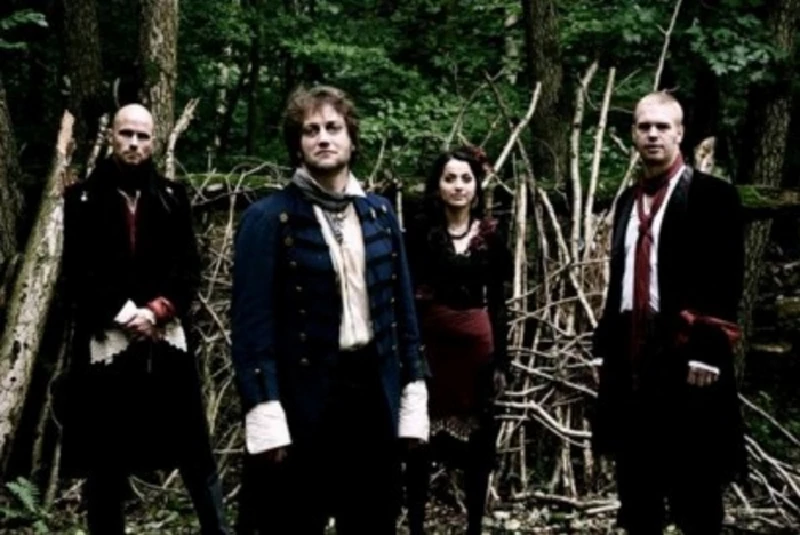
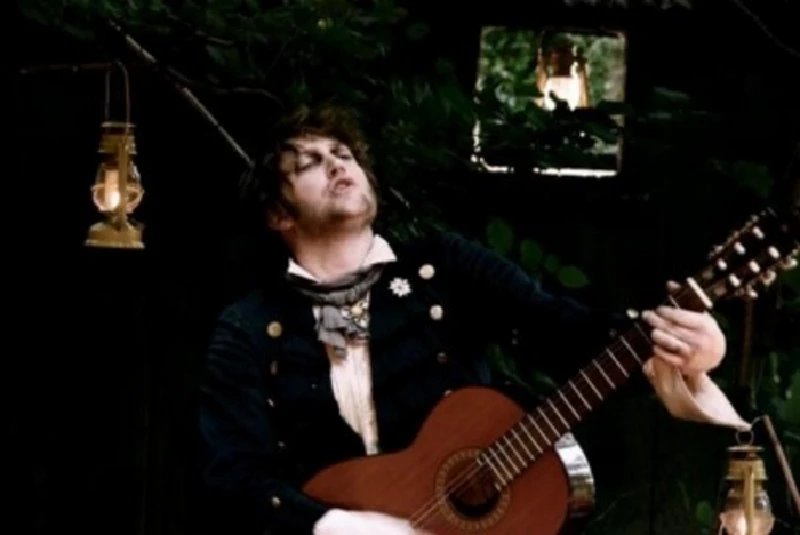
interviews |
|
Interview (2008) |
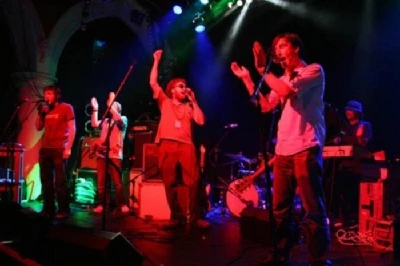
|
| A multi-national English/Dutch/American coalition, Marble Valley are former Pavement and Silver Jews member Steve West's current band. In a hilarious chat, Sarah Maybank talks to him, drummer Andy Dimmack and keyboardist Carl Hogarth, about their recently released fourth album, 'Slash and Laugh' |
reviews |
|
Wild Yams (2008) |
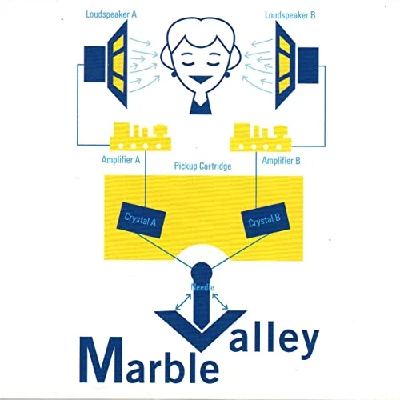
|
| Comfy-sounding stoner rock on latest album from Marble Valley, the current project of former Pavement member, Steve West |
most viewed articles
current edition
Carl Ewens - David Bowie 1964 to 1982 On Track: Every Album, Every SongArmory Show - Interview with Richard Jobson
John McKay - Interview
Colin Blunstone - Thalia Hall, Chicago, 16/7/2025
Billie Eilish - O2 Arena, London, 10/7/2025
Bathers - Photoscapes 1
Visor Fest - Valencia, Spain, 26/9/2025...27/9/2025
Loft - Interview
Sir Tim Rice - Interview
Robert Forster - Interview
previous editions
Manic Street Preachers - (Gig of a Lifetime) Millennium Stadium, Cardiff, December 1999Heavenly - P.U.N.K. Girl EP
Beautiful South - Ten Songs That Made Me Love...
Oasis - Oasis, Earl's Court, London, 1995
Peter Perrett - In Dreams Begin Responsibilities Interview Part One
Boomtown Rats - Ten Songs That Made Me Love....
Coldplay - Wembley Arena. London, 16/8/2022
Prolapse - Interview
Pixies - Ten Songs That Made Me Love...
Trudie Myerscough-Harris - Interview
most viewed reviews
current edition
Davey Woodward - Mumbo in the JumboSick Man of Europe - The Sick Man of Europe
Lucy Spraggan - Other Sides of the Moon
Amy Macdonald - Is This What You've Been Waiting For?
Phew, Erika Kobayashi,, Dieter Moebius - Radium Girls
Bush - I Beat Loneliness
Suzanne Vega - Flying With Angels
Alice Cooper - The Revenge of Alice Cooper
Blueboy - 2
Cynthia Erivo - I Forgive You
Pennyblackmusic Regular Contributors
Adrian Janes
Amanda J. Window
Andrew Twambley
Anthony Dhanendran
Benjamin Howarth
Cila Warncke
Daniel Cressey
Darren Aston
Dastardly
Dave Goodwin
Denzil Watson
Dominic B. Simpson
Eoghan Lyng
Fiona Hutchings
Harry Sherriff
Helen Tipping
Jamie Rowland
John Clarkson
Julie Cruickshank
Kimberly Bright
Lisa Torem
Maarten Schiethart